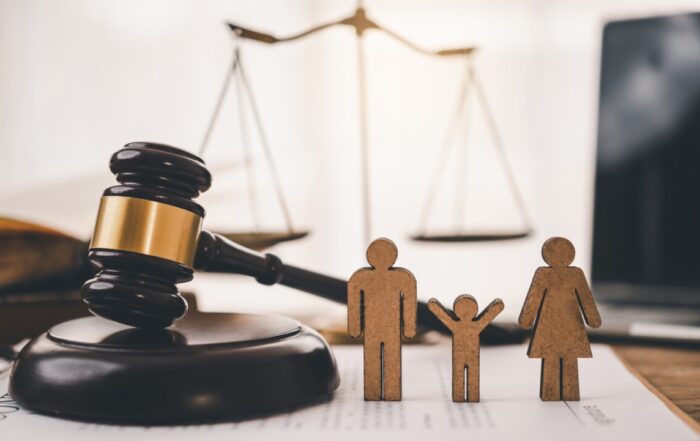What Is Debt Discharge and How Does It Work?
Ready to resolve your legal concerns? Get professional help now with personalized support, Or Call 833-349-4659 for immediate assistance.
Understanding debt discharge is essential for anyone dealing with financial challenges. It involves the legal elimination of specific debts, enabling individuals to start anew without the weight of excessive financial burdens. Familiarity with how debt discharge operates can help you make informed financial decisions.
Debt discharge usually occurs during bankruptcy proceedings, where a court assesses which debts can be eliminated. This process offers relief from debt collectors and allows individuals to rebuild their financial lives. If you’re exploring this option, searching for a “Debt Collection Attorney Near Me” can assist you in navigating the complexities involved.
How Does Debt Discharge Work?
- Filing for Bankruptcy: Initiate the process by submitting a bankruptcy petition to the court.
- Automatic Stay: An automatic stay halts all collection efforts once filed.
- Debt Evaluation: The court evaluates your debts to identify those eligible for discharge.
- Discharge Order: If granted, the court issues a discharge order, freeing you from certain debt obligations.
Consulting with experienced debt defence lawyers can provide valuable guidance throughout this process.
What Types of Debts Can Be Discharged?
Understanding debt discharge is vital for those facing financial challenges. It refers to the legal elimination of specific debts, allowing individuals to relieve themselves of overwhelming financial burdens. Knowing which debts can be discharged is essential for anyone seeking financial relief.
Common Dischargeable Debts
- Credit Card Debt: Often eligible for discharge, helping reduce financial strain.
- Medical Bills: Provides relief for those unable to pay due to unforeseen circumstances.
- Personal Loans: Unsecured personal loans can also be discharged, offering a fresh start.
- Certain Tax Debts: Older tax debts may qualify for discharge, though this can be complex and may require legal assistance.
Debts That Typically Cannot Be Discharged
- Student Loans: Generally not dischargeable unless undue hardship is proven.
- Child Support and Alimony: These obligations are typically not eligible for discharge.
- Criminal Fines: Fines from criminal convictions cannot be discharged.
For clarity on your options, consider consulting a debt collection attorney near me or debt defence lawyers for tailored guidance.
The Process of Debt Discharge: Step-by-Step Guide
Understanding debt discharge is essential for those facing financial challenges. This legal process eliminates specific debts, enabling individuals to regain financial control. Familiarizing yourself with how debt discharge works can help you make informed choices and seek appropriate assistance, such as finding a debt collection attorney near me or consulting debt defence lawyers.
1. Assess Your Financial Situation
Start by reviewing your debts and overall financial health. Determine which debts qualify for discharge, as not all debts are eligible. This assessment is vital for understanding your options and planning your next steps.
2. Consult a Professional
Working with a debt collection attorney near me or debt defence lawyers can offer valuable guidance. They help navigate the complexities of the process, ensuring you understand your rights and obligations, which can improve your chances of a successful discharge.
3. File for Bankruptcy (if applicable)
If you choose to pursue bankruptcy, your attorney will assist in filing the necessary paperwork. This legal action starts the debt discharge process, stopping collection efforts and providing relief from financial burdens.
How Does Debt Discharge Differ from Debt Settlement?
Understanding debt discharge is crucial for anyone facing financial difficulties. It refers to the legal process that eliminates certain debts, providing a fresh start for individuals. However, many confuse debt discharge with debt settlement, which can lead to misunderstandings about their options.
Key Differences:
- Debt Discharge: This is a legal process, often through bankruptcy, where debts are wiped out entirely. It offers relief from creditors and stops collection actions.
- Debt Settlement: This involves negotiating with creditors to pay a reduced amount. While it can lower your debt, it doesn’t eliminate it completely and may impact your credit score.
In summary, while both options aim to relieve financial burdens, debt discharge provides a more comprehensive solution. If you’re considering your options, consulting a debt collection attorney near me or debt defence lawyers can help clarify the best path for your situation.
Eligibility Criteria for Debt Discharge: Are You Qualified?
Understanding debt discharge is essential for those facing financial challenges. It involves the legal elimination of specific debts, enabling individuals to regain financial stability. However, not everyone is eligible for this relief.
Key Factors to Consider
To qualify for debt discharge, consider these criteria:
- Type of Debt: Only certain debts can be discharged. Commonly eligible debts include credit card and medical bills, while student loans and tax debts usually are not.
- Bankruptcy Filing: Debt discharge typically occurs through bankruptcy, requiring you to file for it. This process can be complicated, so consulting a debt collection attorney near me is advisable.
- Income Level: Your financial situation will be evaluated. If your income falls below a specific threshold, you might qualify for Chapter 7 bankruptcy, which can lead to debt discharge. Engaging with debt defence lawyers can help clarify your options.
The Impact of Debt Discharge on Your Credit Score
Understanding debt discharge is essential for those facing financial challenges. It involves the legal elimination of specific debts, enabling individuals to start anew. Familiarity with how debt discharge works can help you make informed financial decisions.
Short-Term Effects
- Immediate Drop: A debt discharge often results in a significant drop in your credit score, signaling to lenders that you struggled to repay debts.
- Debt Collection: Engaging a debt collection attorney near me can assist in managing the consequences of a debt discharge, potentially reducing negative effects.
Long-Term Effects
- Rebuilding Credit: With time, you can improve your credit score by consistently making timely payments on new debts.
- Future Borrowing: Although a debt discharge may hinder immediate loan approvals, it can lead to improved financial health, making you a more appealing borrower in the future.
Consulting with debt defence lawyers can offer further strategies for effectively managing your credit after a discharge.
Common Misconceptions About Debt Discharge Explained
Understanding debt discharge is crucial for anyone facing financial difficulties. It refers to the legal process that relieves a debtor from the obligation to repay certain debts. This can be a lifeline for those overwhelmed by financial burdens, but misconceptions often cloud its true nature.
Debt Discharge Is a Get-Out-of-Jail-Free Card
Many believe that debt discharge means they can simply walk away from all debts. In reality, it applies to specific types of debts, such as unsecured loans. Consulting a debt collection attorney near me can clarify what debts may be discharged.
It Eliminates All Financial Obligations
Another common myth is that debt discharge erases all financial responsibilities. However, secured debts, like mortgages, typically remain. For tailored advice, consider reaching out to debt defence lawyers who can guide you through the nuances of your situation.
Ready to resolve your legal concerns? Get professional help now with personalized support, Or Call 833-349-4659 for immediate assistance.
How Debt Discharge Can Provide Financial Relief
Debt discharge is a vital concept in personal finance, particularly for those facing overwhelming debt. It refers to the legal elimination of certain debts, allowing individuals to start anew without the weight of past financial obligations.
Benefits of Debt Discharge
- Fresh Start: It offers a clean slate, relieving individuals from unmanageable debt stress.
- Protection from Creditors: Once debts are discharged, creditors can no longer pursue collection actions, providing peace of mind.
- Improved Credit Potential: While there may be an initial impact on credit scores, debt discharge can lead to better financial health over time.
Consulting a debt collection attorney near me or debt defence lawyers can help you navigate the process. They guide you through the legalities, ensuring you understand your rights and options. Understanding how debt discharge works, typically through bankruptcy, is essential for regaining control over your finances and achieving relief.
Read Also: How to Find the Best Debt Collection Attorney Near You?
Legal Considerations: When to Seek Professional Help for Debt Discharge
Understanding debt discharge is vital for those facing financial challenges, as it can eliminate certain debts and help regain financial control. However, the legal complexities involved make it essential to recognize when to seek professional assistance.
Signs You Need a Debt Collection Attorney
- Experiencing aggressive debt collection tactics.
- Overwhelmed by debts and uncertain about options.
- Receiving legal notices regarding debts.
Benefits of Consulting Debt Defence Lawyers
- Clarification of your rights and options.
- Representation in negotiations or court.
- Assistance with bankruptcy filings if needed.
If you’re contemplating debt discharge, reaching out to a debt collection attorney near me is a smart move. They can help navigate the process and ensure you make informed decisions that support your financial recovery. Don’t hesitate to seek help; it could be crucial for your financial future.
How FormsByLawyers Can Support You in Navigating Debt Discharge
Understanding debt discharge is crucial for anyone facing financial challenges. It refers to the legal process that eliminates certain debts, freeing individuals from the obligation to pay them. This can provide significant relief, allowing you to regain control over your finances and move forward without the burden of overwhelming debt.
Expert Guidance
Navigating the complexities of debt discharge can be daunting. That’s where our experienced team comes in. We connect you with a debt collection attorney near me who can guide you through the process, ensuring you understand your rights and options.
Tailored Solutions
Our debt defence lawyers specialize in creating personalized strategies to help you achieve debt discharge. They will assess your financial situation, explain the various types of discharge available, and help you determine the best course of action for your unique circumstances.
Don’t let legal complexities hold you back. Start your free consultation here or call 833-349-4659 now.
You can also visit LegalCaseReview to find the best Lawyer.
FAQs
-
What is debt discharge?
Debt discharge refers to the cancellation or elimination of a debt, meaning the borrower is no longer legally required to repay it. -
How does debt discharge work?
Debt discharge typically occurs through bankruptcy, loan forgiveness programs, or settlement agreements, depending on the type of debt. -
What types of debts can be discharged?
Common dischargeable debts include credit card debt, medical bills, personal loans, and certain tax debts. However, some debts like student loans and child support are harder to discharge. -
Is a discharged debt considered taxable income?
In many cases, yes. The IRS may consider discharged debt as taxable income unless an exemption applies, such as bankruptcy or insolvency. -
How do I report discharged debt on my taxes?
If a creditor forgives $600 or more, they may send a 1099-C Cancellation of Debt form, which must be reported to the IRS. -
Can I avoid paying taxes on discharged debt?
You may qualify for an exemption if you were insolvent at the time the debt was discharged. This means your total liabilities exceeded your total assets.





